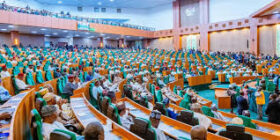A series of virtual events took place 1 to 10 June to maintain momentum in the UN Climate Change process and showcase progress in climate action despite the COVID-19 pandemic.
The series, dubbed the “June Momentum,” led to active exchanges among governments, experts and relevant stakeholders around the world and was an opportunity to expand the understanding of climate change, climate action and the negotiation process.
At the closing event on 10 June, UN Climate Change Executive Secretary Patricia Espinosa said: “This series of events has helped educate and raise awareness among the public and has provided an opportunity to Parties and stakeholders to work in a completely new reality. And it has provided a way to advance technical discussions that may have helped Parties to better prepare for continuing with our work when we are meeting in person in October.”
Formal Subsidiary Body meetings under the UNFCCC normally take place at the beginning of June in Bonn, but this year have been rescheduled to October. The June Momentum was not designed to replace formal negotiations.
The June Momentum provided a platform for engagement on a wide range of work being done under the UN Framework Convention on Climate Change (UNFCCC), including on adaptation, mitigation, science, finance, technology, capacity-building, transparency, gender, Action on Climate Empowerment, and the preparation and submission of national climate action plans, known as Nationally Determined Contributions (NDCs).
The June Momentum was initiated and led by Marianne Karlsen, Chair of the UNFCCC’s Subsidiary Body for Implementation (SBI), and Tosi Mpanu-Mpanu, Chair of the UNFCCC’s Subsidiary Body for Scientific and Technological Advice (SBSTA).
Need for a Sustainable Recovery is Central Topic of June Momentum
The need for a green economic recovery was the central message at the opening on 1 June. In a video address, COP25 President, Carolina Schmidt, said “Today, we have an opportunity to show leadership; to improve peoples’ lives and future. Let’s present enhanced NDCs and help our societies to recover from COVID-19 in a cleaner, more inclusive and more sustainable way.”
On a similarly optimistic note, incoming COP26 President Alok Sharma said: “I am positive that we will come out of the COVID-19 crisis with a green recovery.” UN Climate Change Chief Patricia Espinosa drew attention to the fact that the entire UN system is standing by to help countries design their NDCs and ensure that recovery packages are sustainable. Read more.
Finance and investments for a sustainable recovery
A special event on ‘Finance and Investments for a Sustainable Recovery’ also took place on the opening day, highlighting actions government, public and private financial institutions can take to integrate climate considerations in response to the current health and economic crisis caused by COVID-19.
Mr. Selwin Hart, Special Adviser to the United Nations Secretary-General and Assistant Secretary-General for Climate Action, said that the six climate-related actions to shape the recovery set out by UN Secretary-General can help seize the opportunity and support countries in aligning their economic recovery packages with the Paris Agreement.” Read more.
The important topic of finance was picked up again on 4 June, at the event ‘Delivering Climate Finance in 2020 and Beyond.’
Enhancing support for LDCs for climate action
How to improve the delivery of support to the Least Developed Countries (LDCs) to effectively address the impacts of climate change, including in the context of emerging challenges such as COVID-19, was addressed on day 2 of the June event.
The LDCs continue to face increasing pressure from natural and human-induced shocks given their structural constraints and limited capacities. Any new wave of shocks, such as the current pandemic, stretches their existing vulnerabilities. Read more.
‘Race to Zero’ campaign launch
A highlight of June Momentum was a special event on 5 June, World Environment Day, marking the official launch of Race to Zero – the global COP26 campaign to mobilize leadership and support from businesses, cities, regions and investors for a zero-carbon recovery which creates jobs, unlocks inclusive, sustainable growth and reduces the risk of future shocks.
The campaign – under the stewardship of Nigel Topping and Gonzalo Muñoz, the UN High Level Climate Champions for the UK and Chile – will rally ‘real economy’ leaders to join the largest ever coalition of businesses, investors, cities and regions committed to achieving net zero emissions by 2050. Read more.
Addressing climate change in the agriculture sector
An information event on agriculture and climate change held on 8 June saw countries share their experiences on how to maintain momentum to implement more resilient, sustainable and low-emissions agriculture.
The event focused on the Koronivia Joint Work on Agriculture. Adopted at COP23 in 2017 in Bonn, it includes technical exchanges on specific agricultural topics – such as healthy soils or nutrient management – in dedicated workshops, engaging a broad range of stakeholders. Read more.
National climate action plans discussed
“Where do we stand with Nationally Determined Contributions (NDCs): Enhancing action on climate change in 2020” was the theme of a key high-level event held on the second last day.
NDCs are at the heart of the Paris Agreement and embody efforts by each country to reduce national emissions and adapt to the impacts of climate change. 2020 is a key year for climate change ambition, with countries due to submit their new or updated NDCs. To date, 13 countries have submitted new or updated NDCs that are recorded in the NDC registry.
While some developed countries have embraced the greening of their economic recovery packages against the backdrop of COVID-19, this may pose a challenge to developing countries. The Green Climate Fund (GCF), the United Nations Development Progamme (UNDP) and others are making support available to developing countries for this purpose. UN Climate Change also stands ready to support countries in their NDC process. Read more.
The June Momentum also encompassed a number of meetings of the bodies or processes established under the Convention, such as the Durban Forum on Capacity Building; Compliance Committee; Technology Mechanisms; Consultative Group of Experts; Lead Reviewers meeting; technical examination process on adaptation; dialogue on action on climate empowerment (ACE); gender and climate change; and the FWG stakeholder dialogue. It also encompassed consultations by the SB Chairs with stakeholders such as the observers to the UNFCCC, or consultations with Parties on issues such as the periodic review under the Convention, scientific matters, and co-operation with UN and other IGOs.
Closing event
At the closing June Momentum Event on 10 June, at which young people from 5 regions of the world were represented, Marianne Karlsen highlighted the role of youth in climate action. She said:
“The global mobilization on climate change in 2019 was led by the youth calling for climate ambition and urgent action. Today we want to echo their call to remind us all that 2020 remains a key year for climate.”
And SBSTA Chair Tosi Mpanu-Mpanu again reinforced the key message of June Momentum, namely that COVID-19 recovery packages need to be sustainable and need to be incorporatde them into countries’ NDCs.
“Adopting economic recovery measures that are consistent with low greenhouse gas emissions and climate-resilient development will not only help make the goals of the Paris Agreement a reality, it will also help build resilience to future shocks,” he said.








F*ckin’ tremendous things here. I’m very glad to see your post. Thanks a lot and i’m looking forward to contact you. Will you please drop me a e-mail?
I’m a blog crazed person and i love to read cool blog like yours.~’,\’”
A risk-o-meter can assist one in determining their risk appetite.
Introducing to you the most prestigious online entertainment address today. Visit now to experience now!
I absolutely love your site.. Very nice colors & theme. Did you make this web site yourself? Please reply back as I’m wanting to create my very own blog and would love to find out where you got this from or just what the theme is named. Cheers.
Conhecem algum método para ajudar a evitar que o conteúdo seja roubado? Agradecia imenso.
I really feel the vertigo results of strain.
You make Discovering pleasurable. This is actually the emphasize of my working day!
Absolutely loved it here! Thanks for the great memories and fantastic service. I’ll be back for sure!
Audio began playing any time I opened this web site, so annoying!
Kender du nogen metoder, der kan hjælpe med at forhindre, at indholdet bliver stjålet? Det ville jeg sætte stor pris på.
Bongdalu cập nhật tin tức bóng đá nóng hổi, thể thao sôi động và giải trí hấp dẫn.
Znáte nějaké metody, které by pomohly omezit krádeže obsahu? Rozhodně bych ocenil
Thank you for your sharing. I am worried that I lack creative ideas. It is your article that makes me full of hope. Thank you. But, I have a question, can you help me?
) Jeg vil besøge igen, da jeg har bogmærket det. Penge og frihed er den bedste måde at ændre sig på, må du være rig og
Everything is very open with a precise explanation of the issues.It was really informative. Your site is very useful.Thanks for sharing!
Hello there, You’ve done an excellent job. I’ll certainly digg it and personally recommend to my friends. I am sure they will be benefited from this website.
This blog is a great resource for anyone looking to live a more mindful and intentional life Thank you for providing valuable advice and tips
Can you be more specific about the content of your article? After reading it, I still have some doubts. Hope you can help me.
Can you be more specific about the content of your article? After reading it, I still have some doubts. Hope you can help me.
I genuinely enjoy reading through on this site, it holds good blog posts. “And all the winds go sighing, For sweet things dying.” by Christina Georgina Rossetti.
This information is magnificent. I understand and respect your clear-cut points. I am impressed with your writing style and how well you express your thoughts.
Thank you for your sharing. I am worried that I lack creative ideas. It is your article that makes me full of hope. Thank you. But, I have a question, can you help me?
It’s difficult to find well-informed people in this particular topic, but you sound like you know what you’re talking about! Thanks
Thanks for sharing. I read many of your blog posts, cool, your blog is very good.
It’s nearly impossible to find knowledgeable people in this particular subject, but you seem like you know what you’re talking about! Thanks
také jsem si vás poznamenal, abych se podíval na nové věci na vašem blogu.|Hej! Vadilo by vám, kdybych sdílel váš blog s mým facebookem.
Thanks for sharing. I read many of your blog posts, cool, your blog is very good.
Your article helped me a lot, is there any more related content? Thanks!